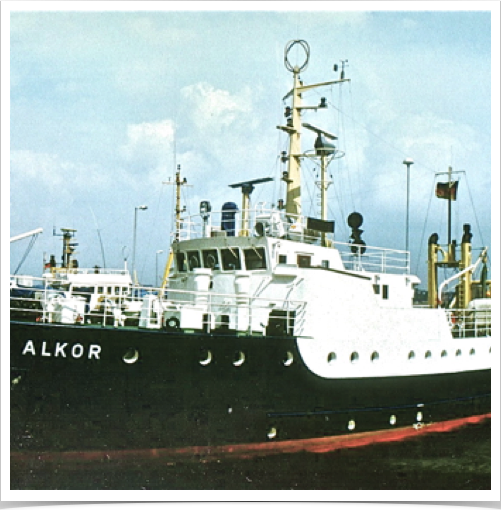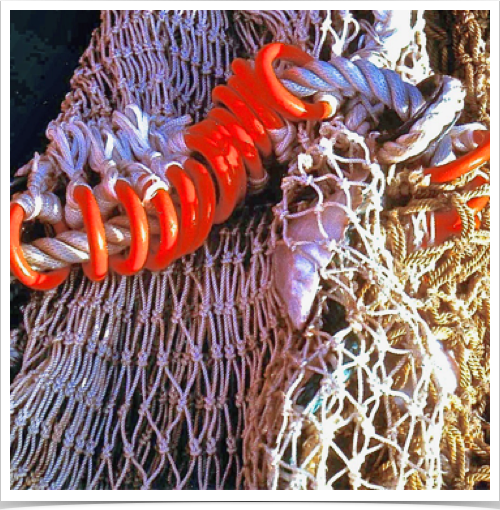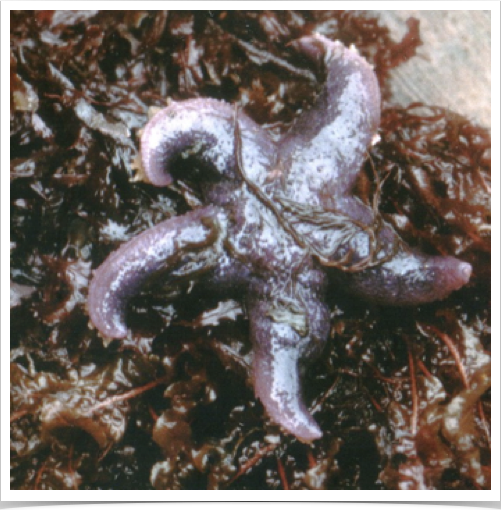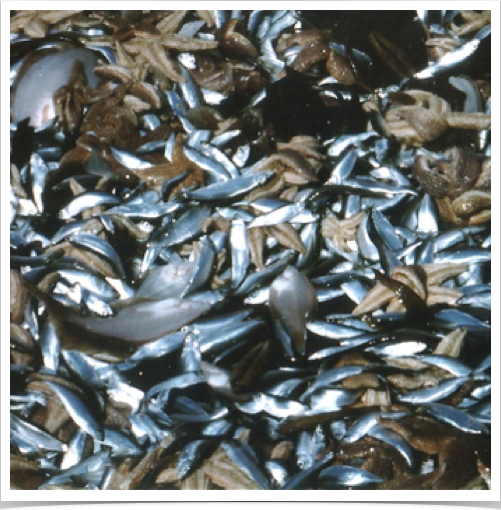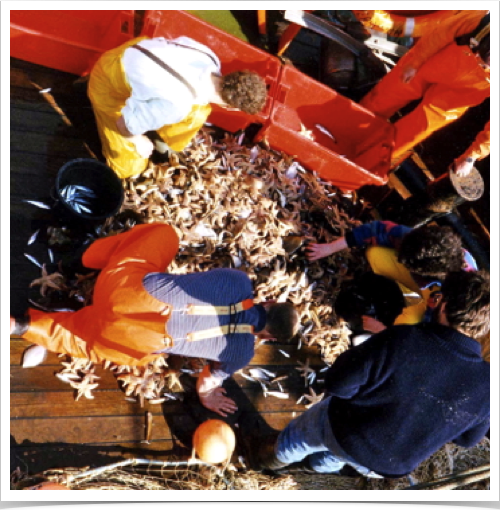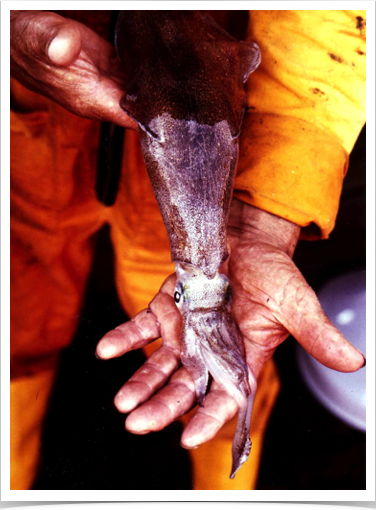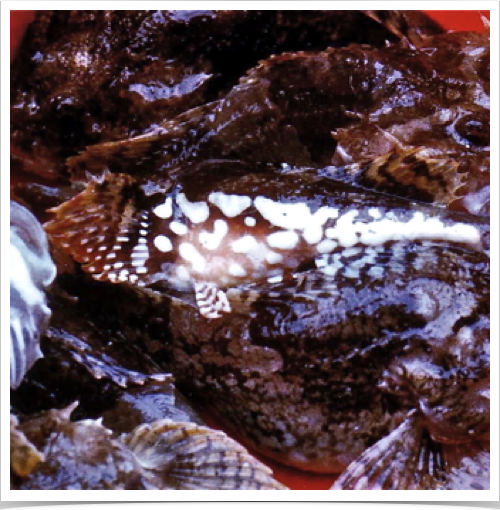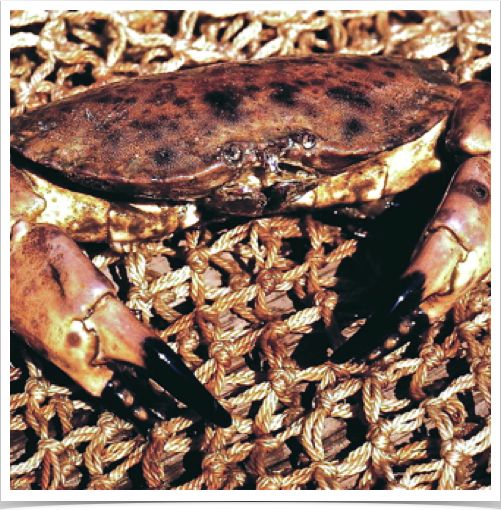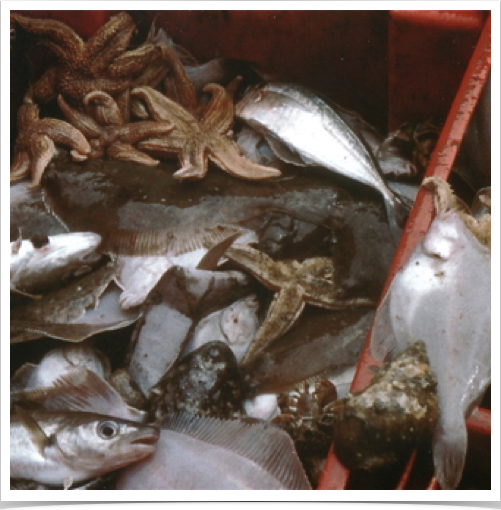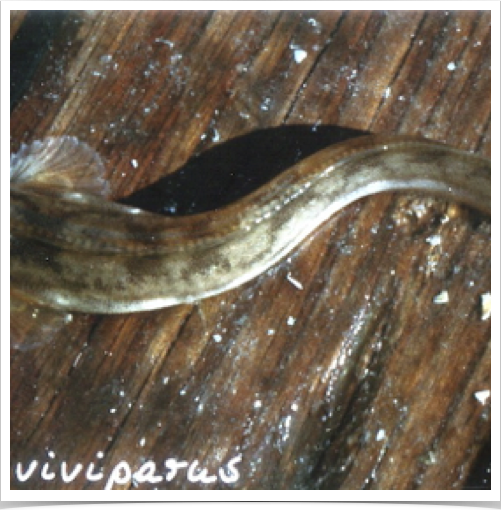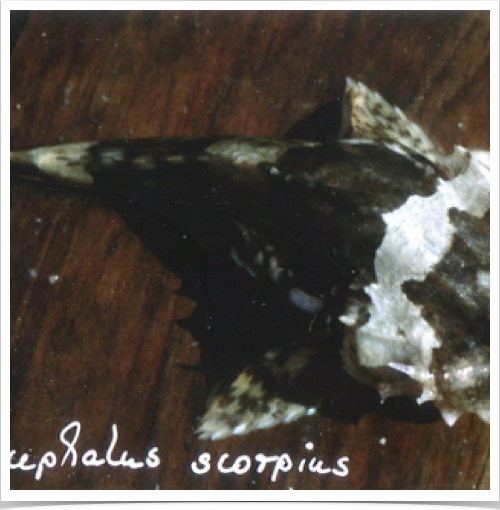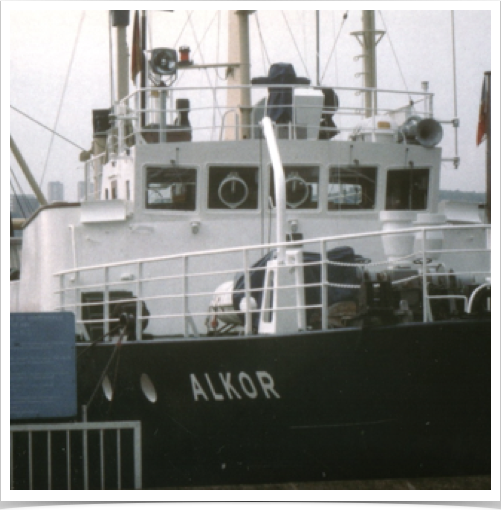FS ALKOR
The research vessel FK ALKOR is stationed at the Baltic Sea’s Institute of Marine Sciences in Kiel, Germany. Equipped with an A-frame lifting gear, fishery winch, nautical and acoustic equipment, dry and wet laboratories, FK ALKOR accommodates 12 scientists and 11 nautical crew members. Dr. Alshuth participated in benthic research and fisheries expeditions on the FS ALKOR to study the biodiversity of invertebrates, as well as pelagic and demersal fish communities from the NE North Sea, through the Skagerrak and Kattegat and to the Western and Central Baltic Sea. A variety of state-of-the-art oceanographic equipment was used to study chemical, physical and biological oceanography in the Baltic Sea - such as the Acoustic Doppler Current Profiler (ADCP) which measures the speed and direction of ocean currents, SONAR (SOund NAvigation and Ranging) used to find and identify objects in water and to determine water depth (bathymetry), CTD - a multi-parameter water monitoring system with physical ocean data monitoring of conductivity, temperature, depth (CTD) - designed to simultaneously measure a range of biological and physical properties in seawater environments, pelagic and bottom trawls - used to collect quantitative data of marine organisms, such as biomass, length and weight, and age class distributions – which are useful in managing marine animal populations and preventing their overexploitation.
Click on any picture below to start slide show.
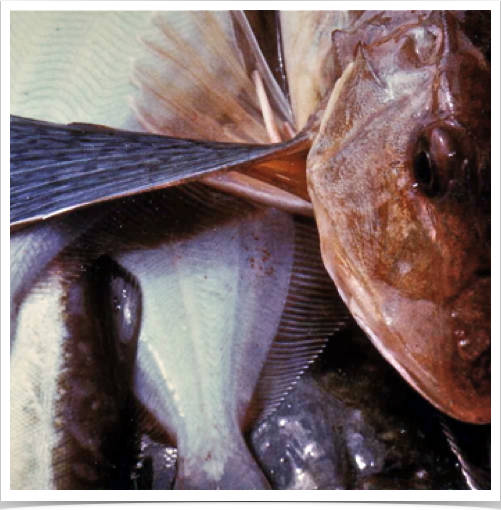
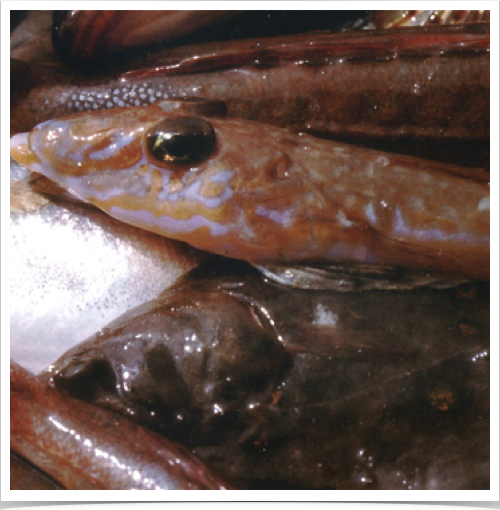
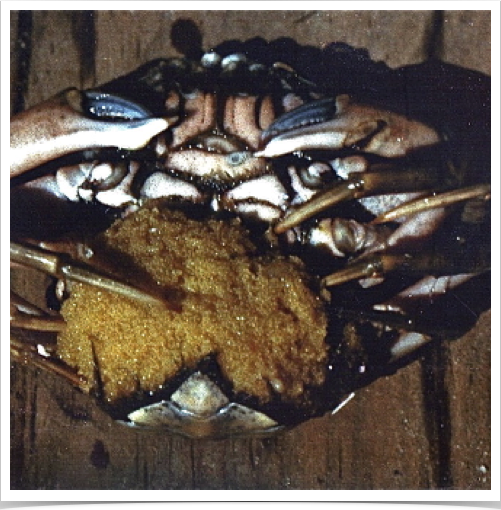
WESTERN BALTIC SEA EXPEDITION
